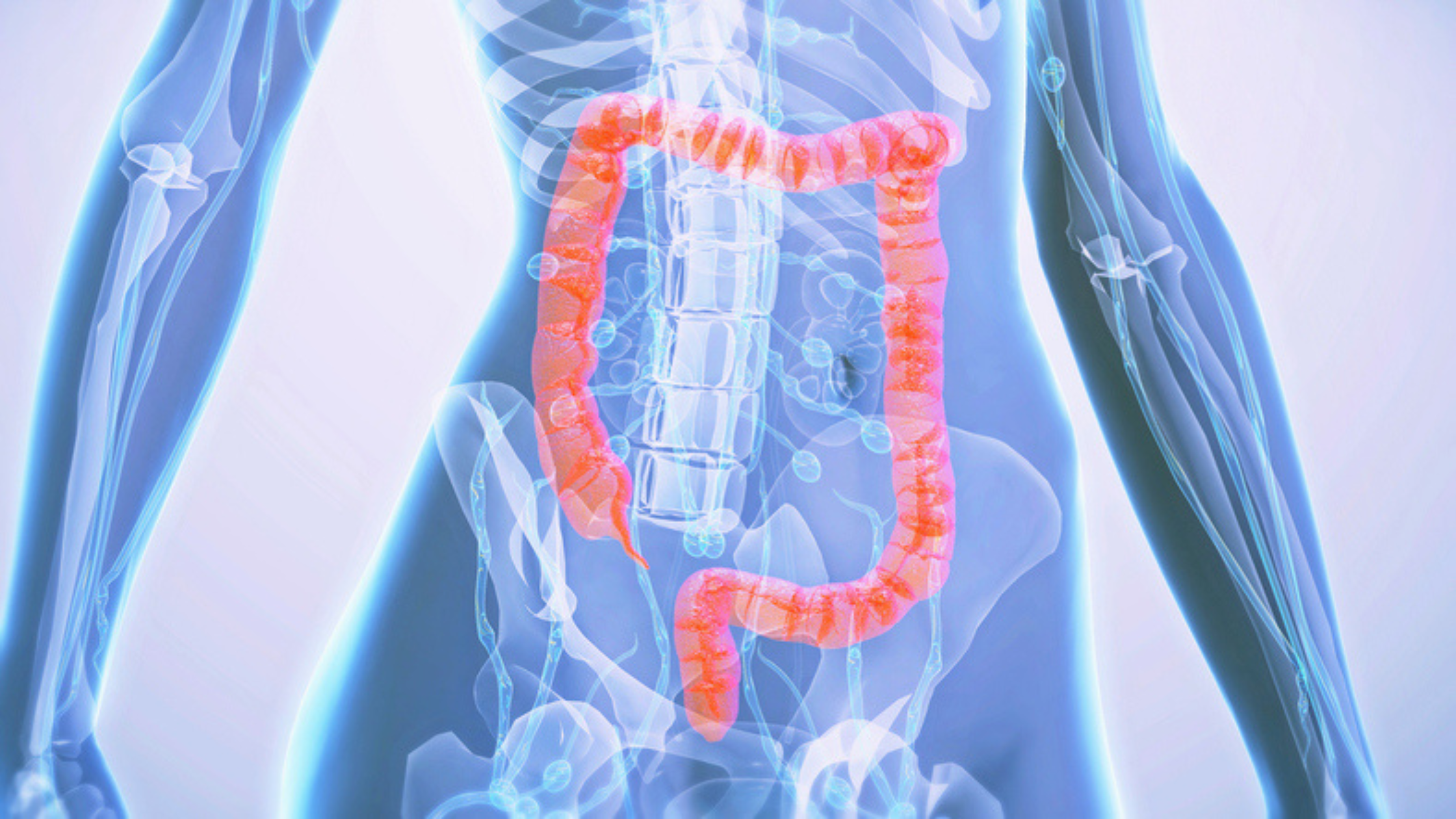Key Takeaways:
-
Your colon starts ageing long before you feel it, with mucus-producing goblet cells declining steadily over time.
-
Ageing guts show more inflammation and fewer protective barriers, particularly in the lower (distal) colon.
-
A new cellular atlas reveals how different regions of the colon age differently, offering insights into why digestion often becomes trickier after midlife.
The colon, that winding metre or so of your large intestine, doesn’t just pass food through your system — it’s an active, complex organ that ages right along with you. And thanks to remarkable new research using spatial transcriptomics, scientists have now mapped how every region of the colon ages across the lifespan — from early adulthood to advanced age.
This means that what we eat, how we digest, and even our risks for conditions like bloating or colon cancer can all tie back to invisible but powerful changes in the cells lining our gut.
What’s Really Happening Inside Your Ageing Gut?
As we age, changes occur not just in our muscles, skin or brain, but also in the cellular landscape of our digestive system. In this latest study, researchers built a detailed atlas of the ageing colon, drawing on data from over 1,500 gut tissues and 400,000 cellular profiles in mice across 11 different age groups (R).
They focused on three main parts of the colon — the proximal, transverse, and distal — and used high-resolution spatial transcriptomics and single-nucleus RNA sequencing to uncover what’s happening, cell by cell.

Their findings? Your gut lining gets less protective, more inflamed, and distinctly different depending on where in the colon you look.
Declining Goblet Cells
Let’s talk about goblet cells — named for their goblet-like shape. These little champions are responsible for producing mucus that lines and protects your gut wall.
With age, goblet cells decline in both number and activity, particularly in the distal colon. This protective mucus acts like a soft, slippery shield for your digestive tract, helping it cope with everything from spicy curry to bacterial invaders.
When that mucus layer thins, your colon becomes more vulnerable. This may help explain why older adults often experience bloating, discomfort, and changes in bowel habits — and why the risk of colon cancer increases as we age (R).
Even more compelling, these changes aren’t random. The atlas reveals a clear gradient: the lower part of the colon loses more goblet cells than the upper part. That’s right — your colon doesn’t age uniformly.
Inflammation Moves In as Protection Moves Out
Another standout finding from the study is that ageing brings a steady rise in inflammation-related cells in the colon — again, particularly in the distal (or lower) colon.
These inflammatory cells are part of your immune system’s defence strategy. But as we age, the immune system can become overzealous — ramping up low-grade, chronic inflammation in areas where it’s not needed. Scientists call this “inflammaging,” and it’s been linked to everything from arthritis to heart disease — and now, gut decline.
In the colon, this inflammatory surge can disrupt normal digestion, weaken barrier function, and trigger more sensitivity to common foods.
And here’s the catch: these inflammation-prone zones show up right where goblet cells are vanishing. It’s like your gut is losing its shield just as the battle heats up.

Why Different Parts of the Colon Age Differently
One of the most surprising discoveries is that the three main regions of the colon — proximal, transverse, and distal — age in very different ways.
The proximal colon (the section closer to your small intestine) tends to retain more protective goblet cells for longer. Meanwhile, the distal colon (the last part before waste exits the body) sees a sharp drop in protective mucus and a sharp rise in inflammatory cells.
That matters, because this lower section is already more vulnerable. It’s where harder waste forms, where toxins can accumulate, and where colon cancer is most likely to develop.
These regional differences could be key to personalising future gut health strategies — whether through diet, lifestyle or medical screening.
A New Computational Framework to Map Gut Ageing
To build this gut-ageing atlas, scientists created a cutting-edge computational tool called cSplotch — a hierarchical Bayesian model that analyses cellular data in spatial context. Think of it as a Google Maps for your colon — showing not just which cells are where, but also how their roles change over time.
This model integrated histological (tissue) images with RNA data to reveal how age, sex, and anatomical region all shape the colon’s landscape.
By layering spatial transcriptomics over 3D gut maps, researchers identified not only which cells are ageing, but how they’re clustering and shifting (R). This kind of spatial insight is crucial because it shows how age-related diseases may take root — not just where.
What This Means for Your Gut
You don’t have to be a scientist to take something away from this. If you’ve noticed your digestion changing with age — even subtly — science now confirms it’s not just in your head.
In fact, your gut may be one of the first organs to feel the effects of ageing, even before you notice signs elsewhere. But here’s the good news: understanding how your colon changes gives you more tools to support it.

From fibre-rich diets to regular movement, hydration and proactive health checks, there’s plenty you can do to help your gut age gracefully. And as research like this continues, we’ll likely see more personalised approaches to digestion and bowel health based on your specific gut region and cellular profile.
Your Gut, Your Future
Our gut is often called the “second brain” — and now, we can see just how dynamically it ages, just like the rest of us. But remember: ageing doesn’t mean decline. It means change — and with awareness and care, those changes can be embraced, understood, and supported. So next time you’re thinking about healthy ageing, don’t stop at your skin or your joints. Think about your colon — the hardworking, complex, and resilient part of you that deserves a little more love.
Would you like to learn more about how you can maintain your gut health at any age? Explore our Gut Health Articles here.





